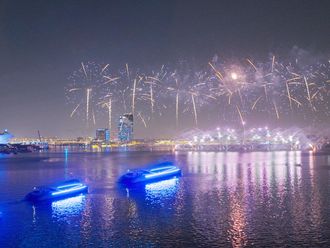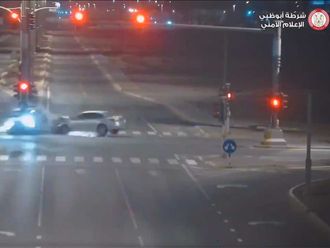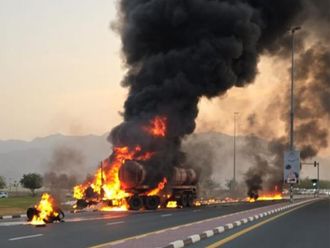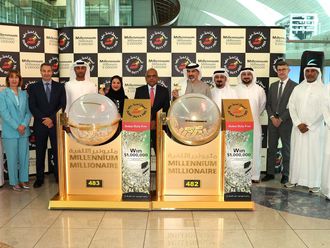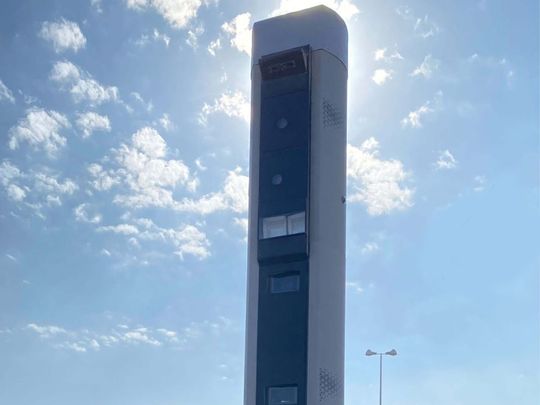
Dubai: Dubai’s streets and main roads are now equipped with cutting-edge radar technology capable of detecting six different traffic violations, powered by artificial intelligence.
Developed by KTC International, these radars aim to improve road safety and enforce strict adherence to traffic laws.
According to Eyad Al Barkawi, General Manager of KTC International Co, the advanced radar can identify violations such as using mobile phones while driving, sudden lane deviations, failure to wear seat belts, improper lane discipline, and illegal tinting of windshields.
Noisy vehicles
A second device, tested successfully, has been introduced within the radar to detect excessive vehicle noise, adding to the radar’s capabilities.
Dubai Police collaborated with KTC International to deploy the radar system. The device uses AI to analyse real-time footage, ensuring accurate detection and documentation of violations.
“The AI-powered radar identifies violations with precision,” said Al Barkawi. “For instance, it can differentiate between clothing and a seat belt, even in lowlight conditions, ensuring accurate enforcement of this life-saving regulation.”
Lane discipline
The radar’s ability to detect failure to adhere to mandatory lane discipline is equally reliable. “Lane violations often indicate aggressive or careless driving. The radar captures video evidence, which is then automatically sent to traffic authorities for review,” Al Barkawi explained.
Distracted driving
The system also targets distracted driving, a major contributor to accidents. “Using AI, the radar detects hand movements and phone light, assessing whether a driver is using a hand-held device,” he added.
Illegal window tinting
One of the latest features of the radar system is its ability to identify illegally tinted windshields. “While certain exemptions exist for medical or other approved reasons, unauthorised tinting poses a safety risk,” Al Barkawi said. The radar scans for tint levels and forwards potential violations to the relevant authorities.
Pedestrian safety
Pedestrian safety is also prioritised, with the radar monitoring driver compliance at pedestrian crossings. Initially deployed in commercial zones, the system has expanded to residential areas, leading to a noticeable improvement in driver behaviour.
Lauding Dubai’s exceptional infrastructure, Al Barkawi noted that the radar’s design complements the emirate’s advanced road network. “With highways featuring up to 10 lanes, these systems are necessary for maintaining order and ensuring public safety,” he said.
Portable
The radar is not only effective but also flexible. Easily mounted on barriers and portable, it can be relocated based on police requirements, providing adaptability to evolving traffic management needs.
A recent addition to the radar’s capabilities is noise detection. Following a four-month trial, the system is now operational, targeting modified vehicles that exceed permissible noise levels. Al Barkawi explained, “The radar records instances of excessive noise, with violations forwarded to traffic authorities for verification.”
The AI radar’s deployment has already uncovered unusual behaviours, such as a driver reading a newspaper while behind the wheel and another using two phones simultaneously.



